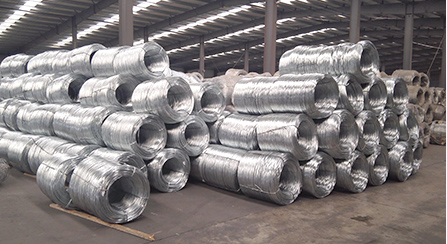Nov . 11, 2024 23:20 Back to list
gabion fence system
The Gabion Fence System A Sustainable and Versatile Solution
In recent years, the emphasis on incorporating sustainable materials and eco-friendly designs into construction has reshaped architectural practices. Among these innovative solutions is the gabion fence system, a versatile and practical option for homeowners and developers alike. Gabion fences, made from wire mesh baskets filled with stones or other natural materials, present a range of benefits, combining functionality with aesthetics while promoting environmental sustainability.
What Is a Gabion Fence?
A gabion is essentially a container made of wire mesh, filled with stones, rocks, or recycled materials, and used to create barriers or structures. Traditionally used for flood control and erosion prevention, gabions have found a new application in fencing systems, offering an attractive alternative to conventional materials like wood, vinyl, or concrete. The construction of a gabion fence involves placing these filled baskets vertically or horizontally to create a solid, stable barrier that can serve various purposes.
Advantages of Gabion Fences
1. Environmental Benefits One of the most significant advantages of gabion fences is their minimal environmental impact. Gabions can be filled with local stones, reducing transportation emissions. Moreover, the gaps between the stones allow for natural water drainage, which helps minimize runoff and erosion, benefiting the surrounding ecosystem.
2. Durability and Longevity Gabion fences are incredibly durable. The wire meshes used are corrosion-resistant and designed to withstand harsh weather conditions, including strong winds and heavy rains. Unlike traditional wooden fences that may rot or warp over time, gabions are less susceptible to wear and tear, providing a long-lasting solution for boundary demarcation.
gabion fence system

3. Cost-Effectiveness The installation of a gabion fence can be more cost-effective in the long run. Although the initial cost of materials may vary, the longevity and low maintenance requirements help to save money over time. Homeowners won't need to budget for frequent repairs or replacements often required with traditional fencing options.
4. Versatile Design Options Gabion fences can be adapted to fit various styles and preferences. The filling materials can range from locally sourced stones to recycled glass or concrete, allowing homeowners to customize the appearance of their fence. Additionally, gabions can be constructed in different heights and shapes, enhancing the aesthetic appeal of gardens, yards, or commercial properties.
5. Sound and Privacy Barrier Constructing a gabion fence can help reduce noise pollution since the stone-filled baskets act as effective sound barriers. This feature makes them an excellent choice for homes in noisy urban settings or near highways. Moreover, the height and density of gabion fences provide privacy, making them ideal for residential properties.
Installation Considerations
While gabion fences are relatively straightforward to install, certain considerations should be taken into account. It's essential to choose the right location, considering factors such as soil stability, drainage requirements, and local building codes. Additionally, a solid foundation is necessary to ensure the fence's longevity, as settling can compromise the structure’s integrity.
Conclusion
The gabion fence system exemplifies a modern approach to boundary creation, merging aesthetics, functionality, and eco-friendliness. With its numerous benefits, including environmental considerations, durability, cost savings, and adaptability, it is no surprise that more homeowners and developers are turning to gabion fences as a preferred choice. As we continue to prioritize sustainable construction practices, the popularity of gabion fences is likely to grow, paving the way for innovative designs that respect both nature and architectural beauty. Whether for a serene backyard, a bustling community park, or a commercial space, gabion fences offer a contemporary solution that meets the needs of today’s environmentally conscious society.
-
Why PVC Coated Gabion Mattress Is the Best Solution for Long-Term Erosion Control
NewsMay.23,2025
-
Gabion Wire Mesh: The Reinforced Solution for Modern Construction and Landscape Design
NewsMay.23,2025
-
Gabion Wall: The Flexible, Seismic-Resistant Solution for Modern Landscaping and Construction
NewsMay.23,2025
-
Gabion Wall Solutions: The Durable, Decorative, and Affordable Choice for Every Landscape
NewsMay.23,2025
-
Gabion Basket: The Durable and Flexible Alternative to Traditional Retaining Walls
NewsMay.23,2025
-
Gabion Basket: The Proven Solution for Slope Stability and Flood Control
NewsMay.23,2025
-
Versatility of Chain Link Fence Gabion
NewsMay.13,2025






